Editor’s Note: This story contains descriptions of graphic scenes.
“My brain will desperately want to forget all this,” narrates journalist Mstyslav Chernov over footage he filmed of city workers adding bodies to a mass grave in Mariupol, “but the camera will not let it happen.”
At the start of Russia’s full-scale invasion of Ukraine, Chernov, along with his Associated Press colleagues, photographer Evgeniy Maloletka and field producer Vasilisa Stepanenko, were the last international media left reporting from the besieged city of Mariupol. Those who remained within the city faced significant risks as Russian forces advanced.
The footage they captured for the AP, including famous scenes from the aftermath of the Russian airstrike on a maternity hospital on March 9, 2022, horrified the world and arguably contributed to mobilizing international aid for Ukraine.


The documentary film "20 Days in Mariupol" pieces together this footage in chronological order. It earned a nomination for Best Documentary Feature Film at this year's Oscars, which are scheduled to air on March 10, and there's a strong likelihood that the film will win.
The Oscar nomination is a first for Ukrainian cinema and a victory for “20 Days in Mariupol” would be a historic milestone for Ukrainian culture during the country's darkest hour.
But many are hoping that it will also bring renewed global focus on the stark brutality of Russia's war crimes as the full-scale war enters its third year.
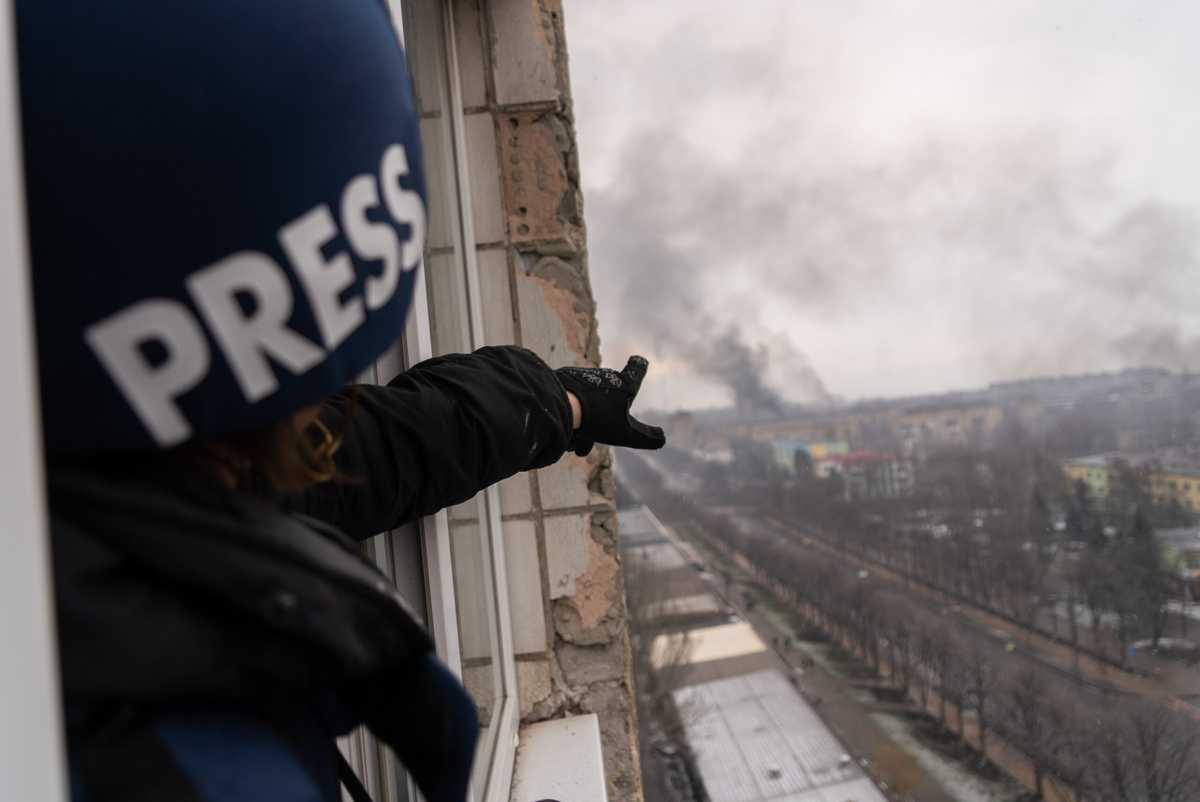
Creeping horror
Prior to the full-scale invasion, Mariupol was home to around 540,000 people and considered one of the largest cities in Ukraine, according to data in a report published by Human Rights Watch, Truth Hounds, and SITU Research this February.
Mariupol’s residents endured relentless bombardments for eight weeks until the city fell under total Russian occupation in May 2022.
The city’s destruction is one of the first major war crimes committed by Russia during its all-out war against Ukraine.
The authors from the report “Our City Was Gone: Russia’s Devastation of Mariupol, Ukraine” estimate that around 400,000 of the city’s residents were able to flee the city by mid-May 2022. However, those who remained “were left for months without basic services, including electricity, running water, and health care.”
The exact death toll from Russia’s siege on Mariupol is unknown given that the city remains under occupation. Official estimates range between 10,000 and 25,000 people, but the actual number is likely higher.
Critical infrastructure was targeted by Russian forces early on in the siege, meaning that Mariupol’s residents were left “without (widespread) access to running water, electricity, gas, heating, telecommunications, or information about what was happening around them in the city or the broader (war).”
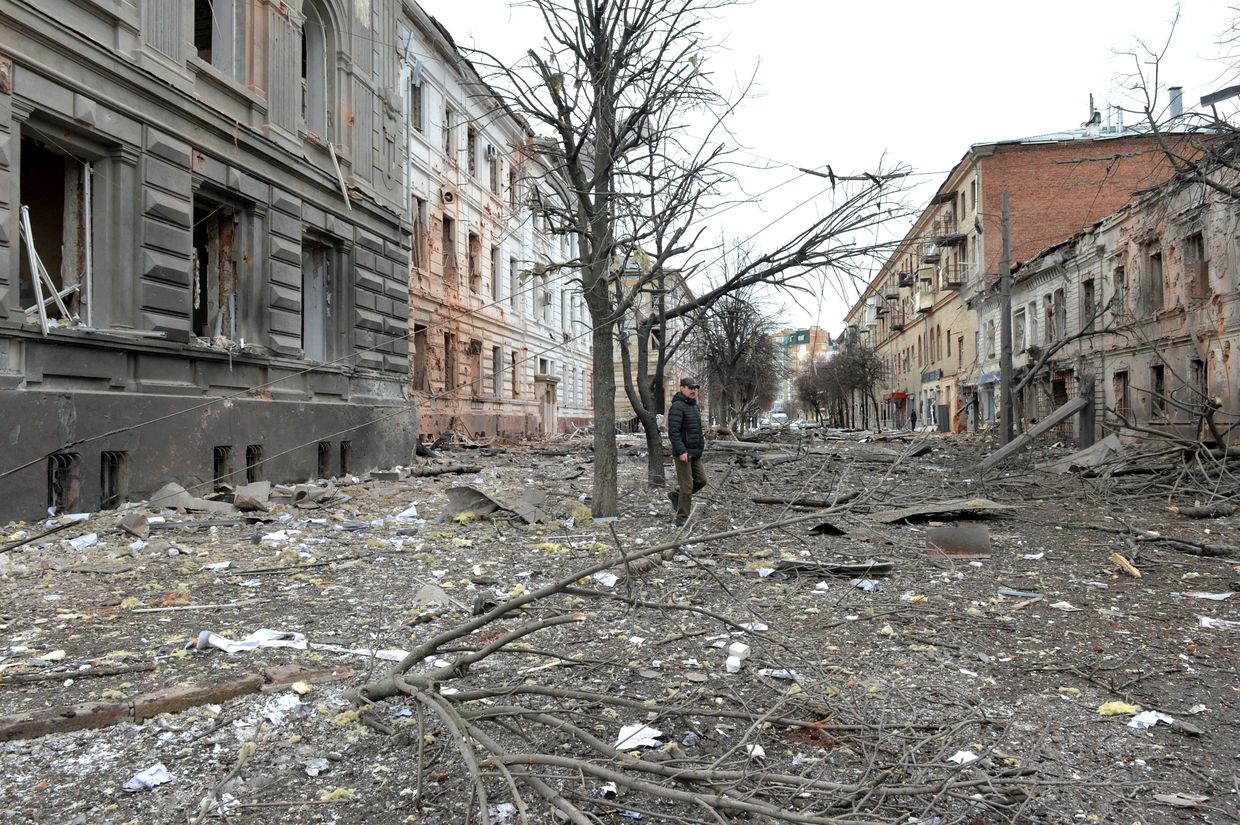
The report also incorporates testimonies from multiple survivors, giving added context to what viewers see in “20 Days in Mariupol.” For example, there is the testimony of a 57-year-old English teacher who sought refuge with her husband at the city’s Regional Intensive Care Hospital.
The woman suffered a broken arm during the Russian shelling of her neighborhood, while her husband sustained injuries to his face, jaw, and legs, rendering him unable to eat or speak.
Doctors in the city increasingly struggled to provide sufficient medical care to patients such as the couple, as the city was under a blockade, and their supplies were rapidly diminishing. They were soon compelled to conduct amputations for the more severely injured patients under improvised anesthesia.
Patients moved to the basement after the Regional Intensive Care Hospital was targeted by Russian forces on March 13.
“There were hundreds of people in the basement. It’s hard to figure out how many. The basement was packed. There were mattresses and we had some ventilation. But there was only a little light, no water, and no toilets. The hospital had a generator, so we sometimes had electricity,” the woman recalled.
The bodies of at least 10 people who later died from their injuries or other complications had to be removed from the basement, the woman added.
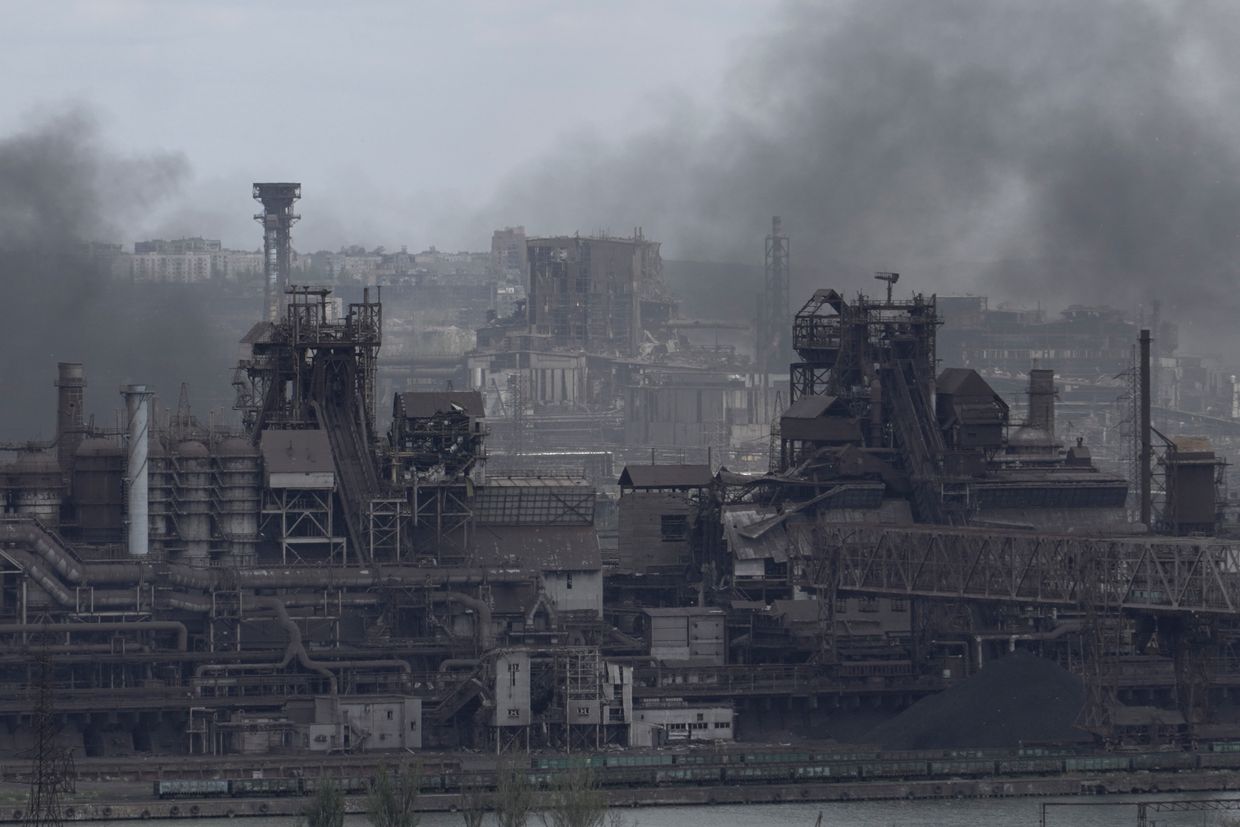
The authors of the report collected multiple testimonies of how Russian forces deliberately targeted civilians.
A member of the Mariupol City Council, Halyna Morokhovska, managed a shelter for civilians that was targeted by Russian forces on March 15, 2022. There were 172 people in the building at the time of the attack.
“There was a lot of shelling, lots of loud explosions ... Suddenly I heard a long hum, like a ‘uuuuuuuuuuuuu’ sound, and then my ears were ringing. I was later told that there was a large crater in front of the building,” Morokhovska said.
“Then I saw (a woman) buried under bricks, with parts of her body sticking out. The right-hand side of my body, especially my leg, had been badly injured by shrapnel. My thigh and my face were bleeding, and blood was flowing into my eyes and mouth.”
‘Film how these f**kers are killing civilians’
“20 Days in Mariupol” captures all this horror as it begins to unfold. Having previously reported on Russia’s attempts to take the city in 2014, Chernov and his colleagues knew that it would once again become a target and decided to return there in 2022.
The first death seen on film is at a hospital on the city’s outskirts, located just a few kilometers from the front line.
Russian forces had not yet entered the city, but the sound of fighter jets overhead and increased shelling prompted residents to seek shelter wherever they could find it.
As Chernov explains to the tense soldiers at the hospital perimeter that he has to film because it is a "historic war," their conversation is interrupted by the arrival of an ambulance. Inside, paramedics are desperately trying to save a four-year-old girl.
“My baby, oh God,” her mother wails. “Please save my child.”
Chernov follows them with his camera as she is transported onto a gurney and brought inside the hospital. After a few minutes, it becomes clear that the little girl cannot be saved, leading to increasing emotional distress among the doctors and nurses.
“It’s good that the press is here,” one of the doctors says angrily. “Film how these f***kers are killing civilians. That’s how (Russia) ‘saves’ people.”
The little girl’s name was Anhelina. Throughout the film, Chernov tries to name the victims whenever he can in his voiceover narration, so that they are not perceived by the viewer as mere statistics.
The deaths of multiple children — including infants — are seen in the film along with the heart-wrenching sight of grieving parents struggling to come to terms with their loss. In one scene, a teary-eyed girl timidly confesses in a shelter that she’s afraid and doesn't want to die. These are perhaps the most difficult scenes to sit through — but they are also important as they underscore the sheer brutality of Russia’s war.
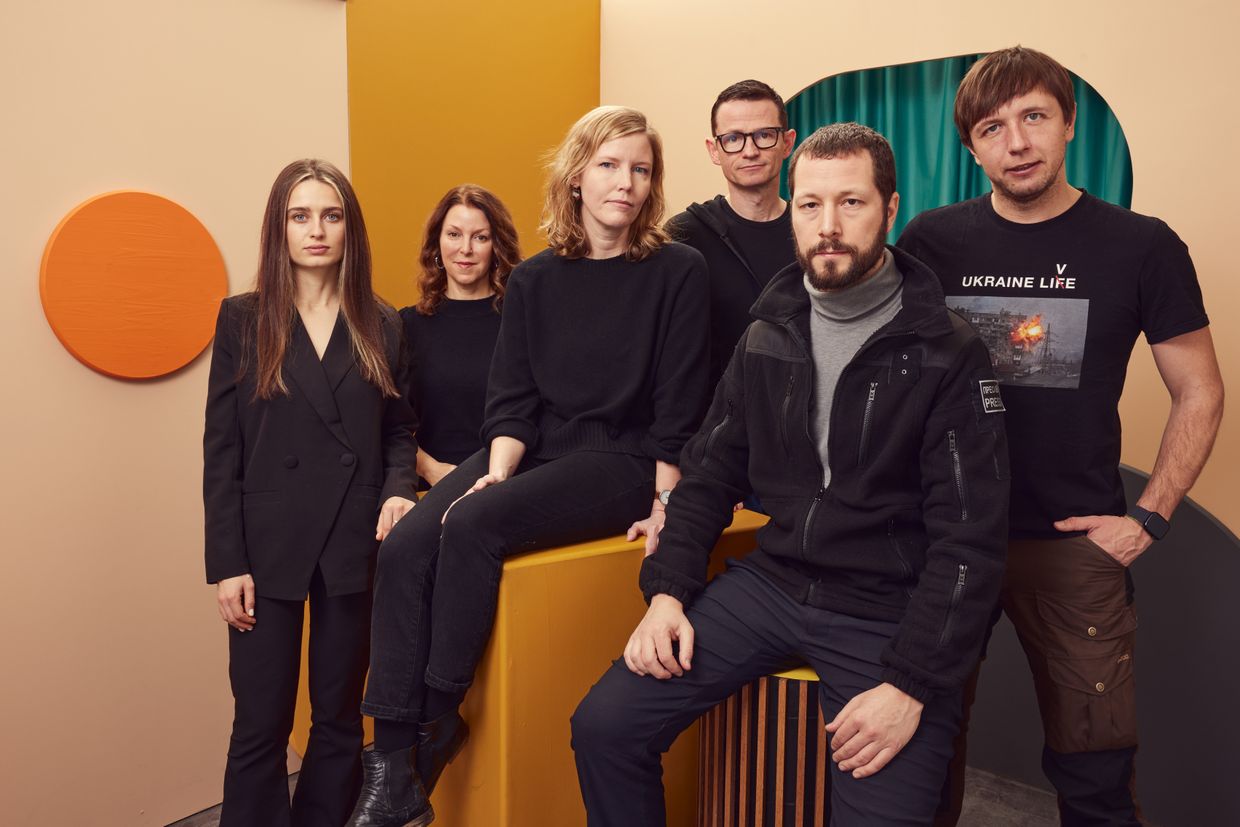
While it might be viewed by some as a controversial decision, the film also chooses not to shy away from the darker moments of the siege on Mariupol. For example, a distressed woman watches helplessly as her store is looted by locals. There are also some Mariupol residents who, due to the spread of misinformation, believe that it’s the Ukrainian army attacking them.
However, there are many more Mariupol residents who declare to the camera — either through tears or anger — that they don’t want their city to be part of Russia.
As Chernov notes in his voiceover narration, war has a way of amplifying a person’s character. After the credits roll in "20 Days in Mariupol," the viewer will inevitably ponder the fate of each individual depicted in the film — whether they succeeded in escaping the city, currently live under occupation, or were later killed by Russian forces.
Getting the truth out
Russia's war against Ukraine has been frequently called "the most documented war in history" because of the extensive footage captured since Feb. 24, 2022. But the pervasive nature of Russian propaganda has led some to still not fully grasp the horror of the violence Russia has inflicted upon Ukraine.
This is a problem that “20 Days in Mariupol” acknowledges, ending with footage of Russia’s Permanent Representative to the United Nations Vasily Nebenzya being confronted by journalists about the footage Chernov, Maloletka, and Stepanenko captured in Mariupol.
Nebenzya tells reporters that there are “so many fakes” and complains about a so-called information war against Russia. Chernov juxtaposes this in the film with footage of Mariupol city residents navigating through a completely destroyed urban landscape, highlighting the grim reality of Russia's "liberation."
Russia's global-scale information war persists as Ukrainian civilians nationwide face repeated targeting through shelling, missiles, and drone strikes.
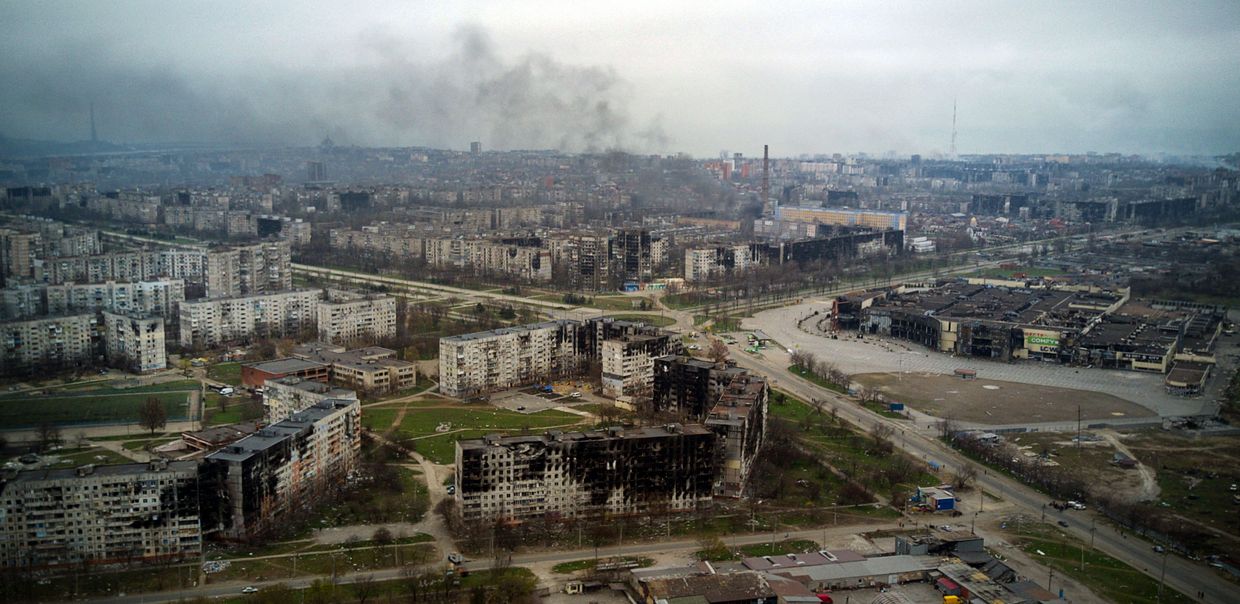
On Jan. 3, the Emilia Romagna Cultural Association announced an event in the Italian city of Modena focusing on the purported "rebirth" of Mariupol and Russia's claimed "rapid reconstruction" efforts in the occupied city.
The Facebook post about the event, which was written in both Italian and Russian, referred to Russia’s “liberation” of Mariupol. Russian Ambassador to Italy Dmitry Shodin and Eliseo Bertolasi, an Italian journalist with pro-Kremlin leanings, were scheduled as speakers.
Thanks to pushback from Ukraine’s Foreign Ministry and the Ukrainian community in Italy, Modena city officials revoked permission for the event on Jan. 9. But the fact that it was even approved in the first place points to the urgency of not letting the world forget about Russia's ongoing war crimes against Ukrainian civilians.
Tetyana Denford and Darya Zorka, who translated the film into English for Frontline PBS, wanted to do their part to help reveal the truth about what happened in Mariupol, despite the emotional toll they knew it would take on them.
“We’d only recently found out about the Russian atrocities in the Kyiv region (when we got hold of the footage) and we knew that Mariupol was likely much worse,” Zorka told the Kyiv Independent.
“However, we didn’t fully understand the scale of destruction and Russian barbarism until we saw the raw footage from the city.”
It would sometimes take Zorka two hours to translate a two-minute segment because she couldn’t stop crying. Likewise, Denford began to consult a therapist because she realized that the second-hand trauma she experienced from watching the footage was affecting her day-to-day life.
“But I realized how urgent this was, and I became sort of robotic in my work. I couldn't stop until I finished whatever I had on my desk that day, as long as it took,” Denford said.
The announcement of the film's Oscar nomination in mid-January represents a significant milestone for Ukrainian culture amid an ongoing war for the country's survival. For the two translators, it’s important that more people will now be talking about what’s happening in Ukraine at a point when coverage of the war is dwindling from international news cycles.
“It just shows you that creativity, art, cinema… these are ways where people can learn more of the truth, instead of just watching the news unfold. We can reach people with these ways on a much bigger scale,” Denford said.
“You just have to be human, and believe that people have a right to tell their stories. We all just have to give each other the space and respect to tell our truth. Otherwise, we have nothing left.”
At the same time, this achievement comes at a great cost to Ukraine and has been followed by countless other atrocities, such as the Bucha massacre, the discovery of mass graves in liberated Izium, and the brutal Russian capture of cities like Bakhmut and Avdiivka.
“I would give all the Oscars in the world for the people of Mariupol to be alive and just live their lives like the rest of us,” Zorka said.
“No Oscar can return the tens of thousands of people killed or heal the millions of those who witnessed unspeakable horrors.”
Note from the author:
Hi, this is Kate Tsurkan, sharing an important culture-related story from Ukraine. Due to Russia’s ongoing genocide, most stories about Ukrainian culture will, unfortunately, be related to war for years to come. But Ukrainian culture is finding ways to persevere and it's important to share these stories.
If you liked reading this article, please consider continuing to support our reporting to see more like this.












